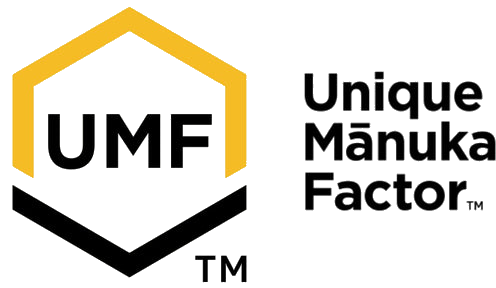
The UMF (Unique Manuka Factor) standard is an assessment of the quality and authenticity of Manuka honey, a variety of honey renowned for its health benefits. This standard was developed in New Zealand to ensure consumers that the Manuka honey they are purchasing is authentic and possesses the unique properties associated with this specific variety.
Manuka honey is produced from the nectar of the Manuka flowers, a shrub native to New Zealand. This honey is widely appreciated for its antibacterial and anti-inflammatory properties, as well as its benefits for digestion and skin health.
The UMF standard evaluates several key components of Manuka honey to determine its level of quality and antibacterial activity. These components include the presence of methylglyoxal (MGO), the level of dihydroxyacetone (DHA), and other specific factors that contribute to the unique properties of Manuka honey.

When Manuka honey is certified according to the UMF standard, it means that it has been tested and verified for its purity and antibacterial activity. Products bearing the UMF label are subject to strict controls and must meet rigorous quality standards to ensure their authenticity.
UMF rating levels range from 5+ to 26+, with each level corresponding to increasing levels of antibacterial activity and quality. The higher the UMF number, the more renowned the Manuka honey is for its health benefits.
In summary, the UMF standard is a way for consumers to ensure they are purchasing authentic and high-quality Manuka honey, benefiting from the unique properties associated with this specific variety of honey. When seeking Manuka honey, make sure to check that it is certified according to the UMF standard to ensure its quality and authenticity.
